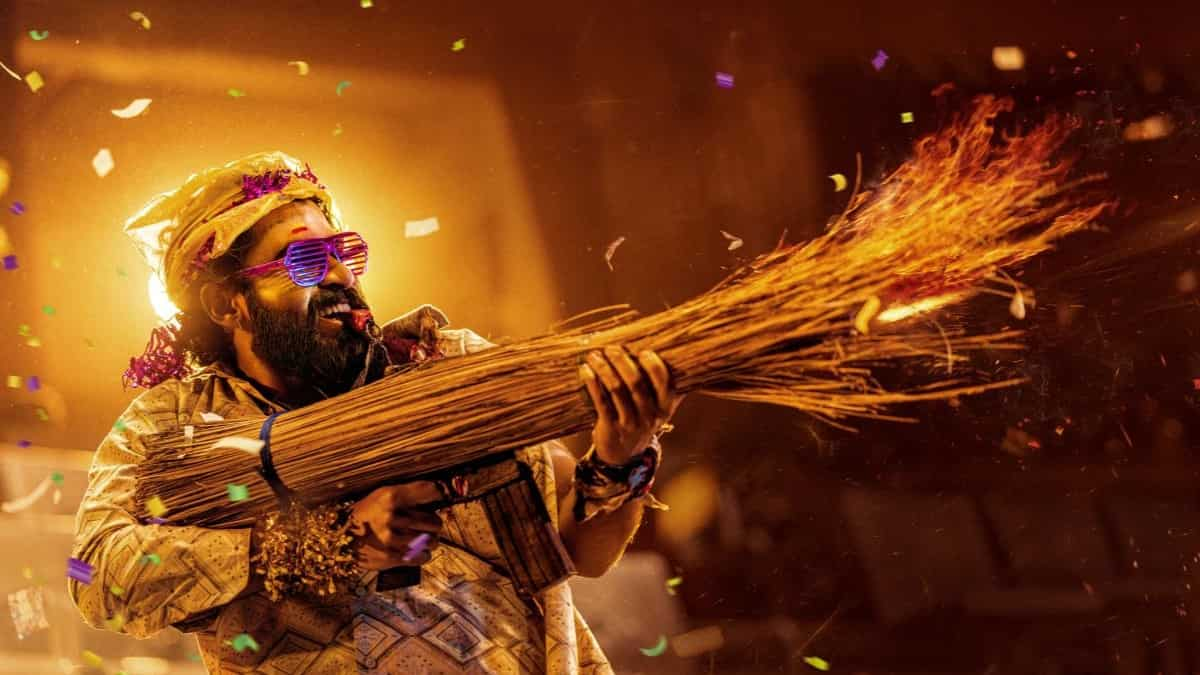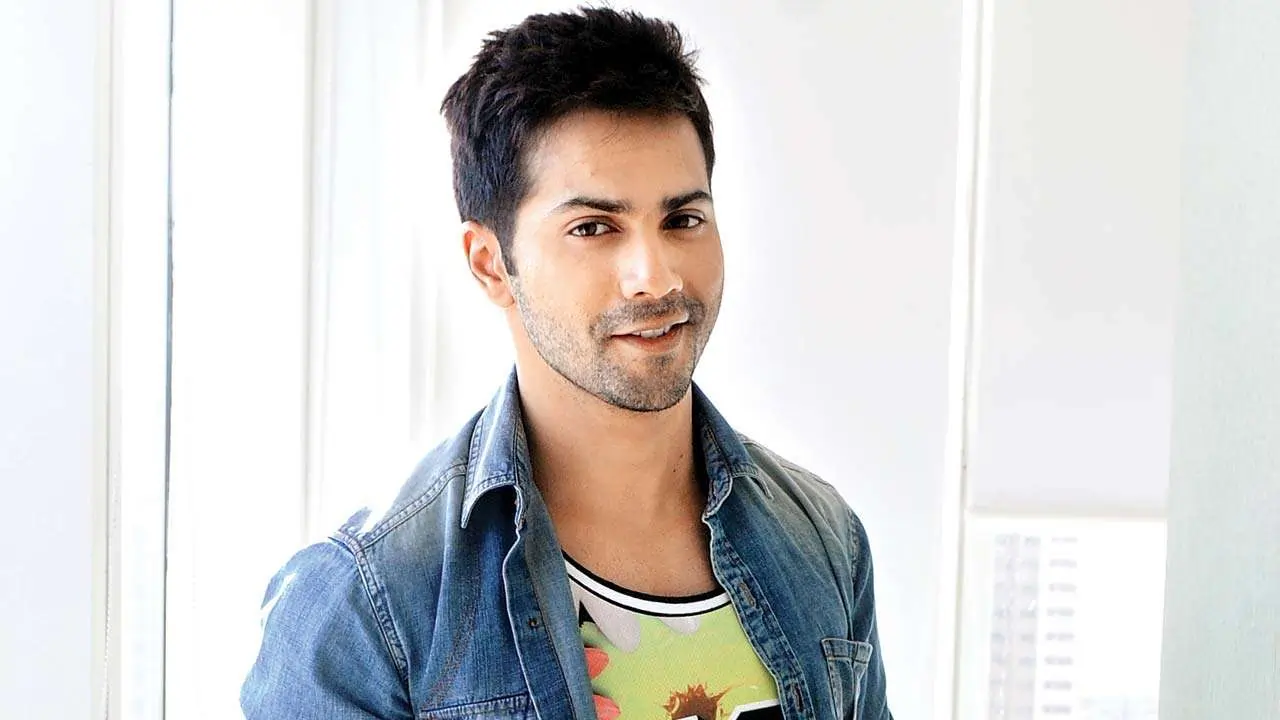
Rohan Parashuram Kanawade Highlights the Lack of Rural Queer Representation in Film
3 months ago | 5 Views
Sabar Bonda (Cactus Pears) is set to make its debut at Sundance! This Marathi feature film stands out as the sole Indian entry at this esteemed film festival this year. The poignant narrative centres on Anand, a man in his thirties from the city, who is compelled to return to his ancestral home to grieve the loss of his father. During this time, he forms an unexpected connection with another individual, Balya.
In anticipation of the film's world premiere at Sundance next week, writer-director Rohan Parashuram Kanawade engaged in an exclusive interview with Hindustan Times. He shared insights into how he drew from his memories to shape the character of Anand, discussed the portrayal of queer characters in Indian cinema, and reflected on the experience of filming in his hometown.
Tell me a little about finding the character of Anand in Sabar Bonda and the moment you knew you wanted to tell the story of this particular human being.
The narrative draws heavily from my personal experiences of mourning my father. Much of what Anand experiences reflects my observations. I did not need to invent Anand; he has always existed within me. While several events in his life are fictionalized, I intended to authentically portray the entire grieving process while reimagining certain aspects of that journey. Anand's reticence stems from the numerous constraints he faces. He is unable to express himself openly to his relatives, leaving him with no choice but to remain silent and endure his circumstances. However, when he encounters the character Balya, we witness a shift in his demeanour, as he can smile in that companionship.
Sabar Bonda focuses on queer characters who come from the lower class, where the idea of ‘coming out’ might not be an option. How important a choice was this for you to show that these people exist, not merely away from us but around us.
No, what I mean is that during the time I was not open about my sexuality with my parents, the few individuals who were aware of it conveyed to me that such experiences were reserved for affluent individuals. Nevertheless, I was living my life and had a presence in this world. Whenever I visited my hometown, I often pondered whether there were any gay men in the area. After completing my education, I ceased to visit, but later, many queer individuals reached out to me on Instagram due to my professional endeavours. This is a natural occurrence. Queer individuals exist in all environments, including rural areas. However, this reality is often absent from visual media, which is a lamentable aspect.
Whenever I viewed queer films produced in India, I never encountered characters who resembled me. I did not see reflections of my truth or how I navigated my life. This is precisely why I choose to write my narratives and convey queer stories in the way I envision. My socio-economic background and my experiences in that village served as my inspiration, ultimately culminating in the story of Sabar Bonda.
Tell me about the experience of filming Sabar Bonda in your mother's village. How much of that authenticity seeped in…
During my childhood visits to my mother's village, I must admit that I often dreaded the journey due to its considerable distance. Even now, while filming there, the crew recognized the challenges posed by the remote location, particularly the absence of a mobile network, which necessitated the use of walkie-talkies. The lack of accessible transportation meant we had to endure a daily trek to reach the filming site.
As a child, our journey involved disembarking from the bus, walking nearly an hour with our luggage, ascending a mountain, traversing its ridge, and then descending to finally arrive at the village, which is entirely encircled by mountains. I was always captivated by the vibrant colours of the landscape—the rich browns and the warmth of the environment. My recollections of that place are vividly reflected in the film.
I spent three years searching for suitable filming locations but faced numerous setbacks. Eventually, my executive producer advised me that perfection was unattainable and that some compromises were necessary. Upon returning to the village, I discovered a location that met our needs, featuring open spaces and closely situated buildings. The visit proved fruitful, and my family was overjoyed, with many members assisting us during the shoot. The overall experience of filming was truly remarkable.
As a filmmaker are there any specific stories or characters that you feel gravitated towards?
1. Not quite. My short film diverges significantly from my previous work. Some certain scenarios and characters pique my interest. Consequently, I aspire to create a horror film. Ultimately, I wish to produce films that resonate with my viewing preferences. In that regard, I am also inclined to make a film featuring dinosaurs! (chuckles).
Sabar Bonda is the first Marathi feature film to be selected at Sundance, which is huge! What is your headspace right now, ahead of the premiere?
I am undoubtedly experiencing a mix of nervousness and happiness, accompanied by a multitude of emotions. However, I also feel a sense of comfort, largely due to my eagerness to meet the Sundance team. Since receiving the news of our selection, the Sundance team has provided tremendous support. I am genuinely thrilled, as this marks my first attendance at such a significant festival, and I am eager to observe the audience's reaction to our film. I look forward to embracing that experience.
Get the latest Bollywood entertainment news, trending celebrity news, latest celebrity news, new movie reviews, latest entertainment news, latest Bollywood news, and Bollywood celebrity fashion & style updates!
HOW DID YOU LIKE THIS ARTICLE? CHOOSE YOUR EMOTICON!
#




















